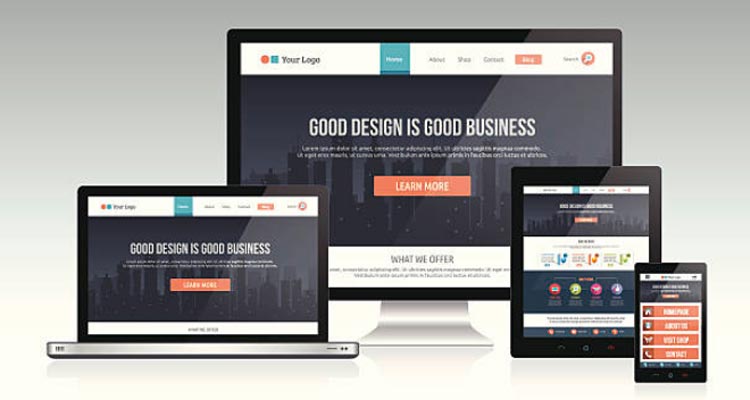Applying as a Canadian applicant
Applications for this program are not currently being accepted.
Applying as an International applicant
Campus tours
Campus tours are one of the best ways to experience Conestoga. During this time, we are offering online guided tours to show you all Conestoga has to offer.
Book your tourVirtual tours
If you can't make an on-campus tour or attend one of our events, the virtual tour is a great way to visit us.
View our Virtual tourProgram description - May 2026
In Conestoga's one-year Interactive Media Management - Interaction Design (IMMID) graduate certificate program, you'll create solutions to various digital interactive challenges.
The IMMID program allows you to build a toolkit of practical user experience design skills and knowledge applicable to a wide range of business challenges, from supporting brand loyalty to increasing accessibility to boosting profits.
By integrating the look, feel, and human experience of digital products, you will learn how to create, analyze, evaluate and simplify digital interactions for technologies such as websites, apps, wearables, smart products and AR/VR applications.
Working individually and in teams in project-based experiential learning environments, you will combine the practices of UX, including visual design, research, writing, ethics, business and IT elements, to present evidence-based and human-centered design solutions.
To set you up for success, faculty with direct industry experience offer guidance as you build a portfolio of original work. Additionally, a field placement opportunity gives you a chance to directly apply your skills in the workplace and be a leader in creating better digital experiences.
Program details
Estimated tuition & fees
The tuition and fee details for the 2025-2026 academic year (September 2025 to August 2026) are provided below for your selected intake. Please note that fees for the 2026-2027 academic year (September 2026 to August 2027) will be released in Spring 2026. Students continuing their studies into the 2026-2027 academic year should review the updated
fee details when they become available. Additional costs for books and supplies may apply. All fees are subject to change and are reassessed annually.
1 Term
Canadian
International
Canadian fee details
| Description | Spring 2026 |
|---|---|
| Program Tuition Fee (ACR) | $3307.50 |
| Administration Fee | $25.00 |
| Capital Development Fee | $84.22 |
| CSI Advocacy Fee | $8.16 |
| CSI Association Fee | $104.04 |
| CSI Extended Health & Dental Plan Fee | $116.82 |
| CSI Legal Care Fee | $20.10 |
| CSI UPass Fee | $124.91 |
| Graduation/Alumni Services Fee | $20.00 |
| ONE Card Fee | $8.50 |
| Recreation/Athletics Fee | $71.50 |
| Student Services | $89.00 |
| Technology Enhancement Fee | $110.00 |
| Work-Integrated Learning (WIL) Documentation Fee | $43.00 |
| CSI - Student Welcome Kit Fee (optional) | $75.00 |
| CSI Student Club & Society Fee (optional) | $10.00 |
| CSI Student Events Fee (optional) | $35.00 |
| Sustainability Fee (optional) | $5.00 |
| Term Total | $4257.75 |
Returning student tuition & fees
View all Canadian tuition & fee details for all levels
View all International tuition & fee details for all levels
International fee details
| Description | Spring 2026 |
|---|---|
| Grad. Cert. Program Tuition | $8159.50 |
| Administration Fee | $25.00 |
| Capital Development Fee | $84.22 |
| CSI Advocacy Fee | $8.16 |
| CSI Association Fee | $104.04 |
| CSI College Int'l Health Insurance Plan (CIHIP) | $196.35 |
| CSI Extended Health & Dental Plan Fee | $101.64 |
| CSI Legal Care Fee | $20.10 |
| CSI UPass Fee | $124.91 |
| Graduation/Alumni Services Fee | $20.00 |
| ISR (International Student Recovery) | $375.00 |
| ONE Card Fee | $8.50 |
| Recreation/Athletics Fee | $71.50 |
| Student Services | $89.00 |
| Technology Enhancement Fee | $110.00 |
| Work-Integrated Learning (WIL) Documentation Fee | $43.00 |
| CSI - Student Welcome Kit Fee (optional) | $75.00 |
| CSI Student Club & Society Fee (optional) | $10.00 |
| CSI Student Events Fee (optional) | $35.00 |
| Sustainability Fee (optional) | $5.00 |
| Term Total | $9665.92 |
Returning student tuition & fees
View all Canadian tuition & fee details for all levels
View all International tuition & fee details for all levels

Program device & software requirements
This program requires you to have a device that meets certain specifications. For most students, this cost is in addition to the tuition & fees listed above.
view device requirementsFinancial assistance
Awards & scholarships
Student Financial Services awarded more than 400 awards, scholarships and bursaries last year.
Delivery sequence - May 2026 - Kitchener – Doon
| FALL | WINTER | SPRING |
|---|---|---|
| Class | ||
| Class |
